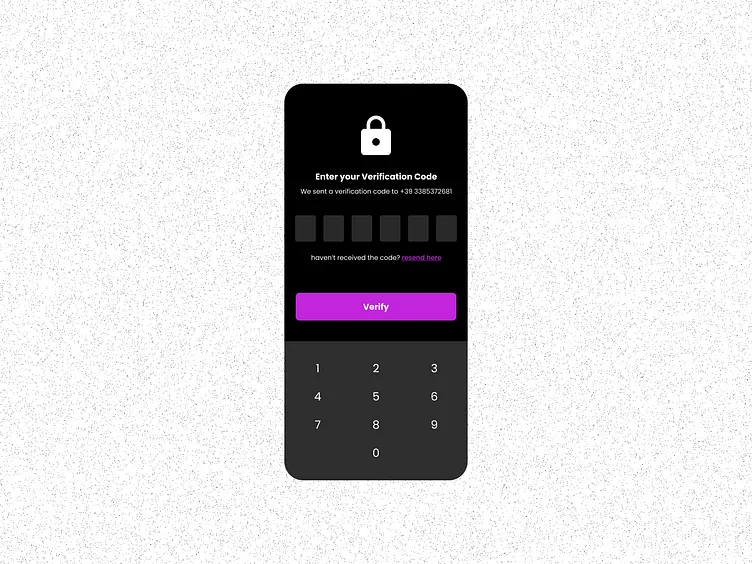In today’s digital-first world, businesses and users rely on secure and reliable online interactions more than ever. From signing up for e-commerce platforms to accessing banking services, verifying the authenticity of users is essential. One of the most effective tools for ensuring this is online phone number verification. By confirming that users have control over the mobile numbers they provide, platforms can prevent fraud, secure accounts, and foster trust.
With cyber threats on the rise and user expectations for safety increasing, phone number verification has become a cornerstone of digital security. This article explores how it works, why it matters, and the industries that benefit most from it.
What Is Online Phone Number Verification?
Online phone number verification is the process of validating that a user’s mobile number is active, valid, and controlled by them. The most common method involves sending a One-Time Password (OTP) via SMS, voice call, or messaging app. Once the user enters the correct code, the system confirms ownership of the number.
Verification is used across multiple applications, including:
- Account registration
- Two-factor authentication (2FA)
- Password recovery
- Transaction confirmation
- Notifications and alerts
Because most people carry mobile phones, phone verification is accessible and effective globally.
Why Online Phone Number Verification Is Essential
1. Prevents Fraud and Fake Accounts
Online platforms are vulnerable to fake accounts, spam, and automated bots. While emails can be easily generated, phone numbers require physical SIM cards, making them more difficult to fake. Phone verification helps:
- Block fake registrations
- Reduce bot activity
- Prevent promotion and coupon abuse
- Safeguard accounts from unauthorized access
This ensures a safer and more authentic user base for businesses.
2. Enhances Account Security
Passwords alone are often insufficient to secure accounts. Many users reuse passwords or fall victim to phishing scams. Phone verification adds a second layer of protection, helping prevent unauthorized access even if login credentials are compromised. It is especially useful for:
- High-value transactions
- Logging in from new devices
- Password resets and account recovery
3. Improves Communication Reliability
Verified phone numbers ensure that important notifications—like delivery updates, OTPs, and alerts—reach their intended recipients. This improves user experience, reduces communication failures, and enhances trust between the platform and its users.
4. Supports Compliance and Regulatory Requirements
Industries such as banking, finance, healthcare, and online marketplaces must comply with KYC (Know Your Customer) and AML (Anti-Money Laundering) regulations. Phone verification provides a reliable method for confirming user identities and ensuring compliance, without disrupting the user experience.
5. Builds User Trust and Credibility
Users are more likely to trust platforms that prioritize security. Phone verification demonstrates that a business takes user protection seriously, fostering confidence, loyalty, and long-term engagement.
How Online Phone Number Verification Works
The process, while simple for users, involves multiple steps behind the scenes:
- User provides their mobile number during registration, login, or transaction confirmation.
- System generates a unique OTP, usually 4–6 digits.
- OTP is delivered via SMS, voice call, or messaging app.
- User enters the OTP on the platform.
- System validates the code, confirming ownership of the phone number.
Most OTPs expire within minutes to prevent misuse and enhance security.
Types of Phone Verification Methods
- SMS OTP Verification: The most common and universally supported method.
- Voice Call Verification: Delivers OTPs via automated calls, useful where SMS may fail.
- Flash Call Verification: Verifies the number through a missed call, reducing manual steps.
- Messaging App Verification: Uses apps like WhatsApp or Telegram to deliver OTPs reliably in regions with poor SMS delivery.
Industries Benefiting From Phone Number Verification
Banking and Fintech
- Secures financial transactions
- Prevents account takeovers
- Supports regulatory compliance
E-commerce and Retail
- Reduces fake orders
- Prevents promotional abuse
- Ensures accurate delivery information
Healthcare
- Confirms patient identities for telemedicine
- Protects access to medical records
Ride-Hailing and Delivery Services
- Verifies drivers and customers
- Improves safety and accountability
Social Media and Online Communities
- Reduces fake profiles and bots
- Enhances authenticity and user trust
Best Practices for Businesses
- Use short-lived OTPs (2–5 minutes) for maximum security
- Provide multiple verification channels for accessibility
- Avoid including sensitive information in messages
- Offer clear instructions during the verification process
- Monitor delivery rates and optimize provider performance
- Implement fraud detection systems to flag suspicious activity
Following these practices ensures secure, reliable, and user-friendly verification.
Conclusion
Online phone number verification has become an essential tool for modern businesses. It prevents fraud, strengthens account security, ensures reliable communication, supports regulatory compliance, and builds trust with users. As digital interactions continue to grow, implementing robust phone verification processes is no longer optional—it is a necessity for safe, trustworthy, and efficient online platforms.

